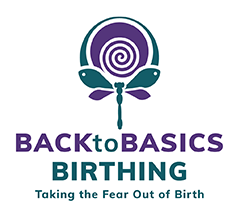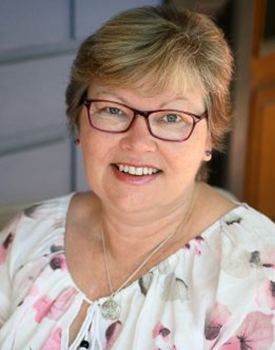Contact Vicki
If you have any questions or would just like more information please don't hesitate to get in touch by clicking the button below and filling out the contact form.
Contact Vicki

Traditionally women supported women after birth – mothering the mother with postpartum support because it was recognised that newborn mothers are just as vulnerable as newborn babies.
Family members would look after the new mother after they gave birth, feeding them, supporting them, unburdening them from day to day activities and ensuring they were well rested and healing from their labour and birth experience.
The postpartum period in many cultures is about healing and adjusting to becoming a mother to a newborn baby. They recognise that a woman’s mind and body goes through a gruelling act of physical and emotional activity during labour and birth, therefore it is the “village” that takes care of the mother, feeding her, nurturing her and comforting her while she learns about herself and her baby. During this time of ‘confinement’ the woman is able to rest to replenish her energy, while being provided with foods for healing and milk production for breastfeeding and postpartum support.
In Western culture, we have neglected the needs of the mother and the mother neglects her own needs as well when it becomes all about the baby. It’s concerning that today women spend so much time, money and resources preparing for their labour and birth, yet not many will consider the postpartum support they may need and how to heal physically, mentally and emotionally after their birth.
Those early days after birth can be tiring, emotionally draining and scary, particularly for first time mums. Yet because of our “fast paced lives” so many women are getting straight back into work, going to the gym, trying to look good, slogging it out to get back to their pre-pregnancy weight and appear that they have “their shit together” for the sake of their family and friends.
A mother needs time to grow into parenthood with her partner. As babies grow, so does the confidence of a mother. Julia Jones from Newborn Mothers states: “the postpartum period is a time for the mother to rest, regain strength and care for her baby.”
Women need to know and understand that:
The healing phase is a necessity, not a luxury and that is why postpartum support should be a high priority after birth.
Generally you will hear that 6 weeks is how long it will take a woman to recover after birth, but this is just an estimate. Just like I say with pregnancy and birth, all women are unique, and will all have differing needs for their postpartum recovery.
Some women will have more swelling, bruising and pain around the perineum, vulva and vagina than others, particularly if she has had to have an episiotomy or assisted birth with forceps or vacuum. There may also be bladder weakness and the loss of sensations of when a woman needs to urinate due to temporary damage to the nerves.
Other women can continue to experience pain in the pelvic area, breastfeeding pain and stress and emotional pain. They need to be looked after, feel supported and have options to ease their pain on all levels.
Women need to be encouraged to rest as much as possible so the muscles and ligaments that hold the uterus in place regain their strength.
Traditionally the body of the postpartum woman was kept warm as they lose the increased blood volume that has built up during pregnancy, therefore circulation needs to be increased and the body warmed to ensure optimum healing. Warming foods and spices to support the digestive system and boost milk production were also part of the postpartum healing protocol.
Although many cultures still embrace these traditional ceremonies and confinement practices, in today’s society, particularly in western society, the chances of women taking 6 weeks down time to rest, restore and recover is probably not a reality, but there are still areas that can be considered to help her through the postpartum healing and learning phase.
For some women transitioning into motherhood is a calm and uneventful experience, and then for others it can be a huge challenge adjusting, readjusting and surviving through those first few weeks, months and even years as the child grows, and their wants and needs change.
Becoming a mother is such an important moment in a woman’s life, yet it can be an incredibly challenging time splattered with excitement, eye-opening moments (like that projectile vomit across the room after a feed) and fatigue.
It can be really difficult to cope when a mother doesn’t get quality sleep, or she doesn’t stay hydrated or have healthy, nutritious foods to sustain her energy and breastfeeding demands.
Most women eventually work out ways of doing things, but this is usually after a lot of unsolicited advice and practice runs, and if they don’t feel they have it right in the first 6 weeks then many women give up breastfeeding, yet most times they just need that support, encouragement and someone to listen to them.
A number of women I have worked with experience isolation, loneliness and confusion once the euphoria of bringing home their baby comes to an end, and people stop making a fuss.
Sometimes women can also go through a grieving process because they have lost the ability to be able to do things spontaneously, perhaps even the sense of loss of their identity, especially if she has gone from a successful position within the workforce to now being a stay at home mum. The demands of being a newborn mum are quite different to the demands of her career – now she has a little person to consider, and things can’t always be done at the drop of a hat or fit to a deadline. Suddenly the reality sets in and is in stark contrast to the fantasy she imagined of what becoming a mother would be like.
So let’s look at how a woman can nurture herself or be nurtured during the postpartum period and I encourage family and friends to take note, so you know how to support that woman you are close to who is going to become a mother:
Every woman is different and will recover from childbirth at different rates.
Within minutes of giving birth the uterus starts to contract and reduces in size. Within a couple of days the top of the fundus may be felt around the level of the belly button, and within four weeks the uterus should be close to its pre-pregnancy size. It’s important for mums to understand that it may take a while for them to go back to their pre-pregnancy size, and some won’t get to the pre-pregnancy size and shape for years, and some won’t get back to their pre-pregnancy size at all and that can create body image stress.
Her perineum and vulva may still be really tender so making her some padsicles and a sitz spray bottle with witch hazel and herbs will be a huge comfort.
The abdominal muscles can take some time to adjust after being stretched for so long and some women may still look pregnant for several weeks after birth. Some women may end up with a “pregnancy pouch” that they may never be able to get rid of. Checking in with a Women’s Health Physio to see if there is a support belt you can wear to make you feel more comfortable and supported around the abdominals, but also to monitor the pelvic floor muscles that hold the uterus, bladder and bowel in place.
You may also have stretch marks, which over time will fade and become a silvery colour and less noticeable, but for some women this can cause negative feelings about their body.
Breastfeeding is a learned skill and doesn’t always come naturally for all women. This can lead to cracked and sore nipples and the leading cause of cracked or sore nipples is incorrect positioning, attachment issues and using breast pumps incorrectly. Other causes can be infection, so it is important for women to get checked by a qualified Lactation Consultant.
Some women may not feel instantaneous love for their newborn either. We all adjust differently to different circumstances and changes in our lives, and becoming a mother is no different. Be patient with yourself and your new role. Have lots of skin to skin and smelling of your baby, to trigger those bonding hormones. Do whatever it takes and feels right for you. Dads also go through huge adjustments, so we also have to be mindful of what they think and feel as well and encouraging them to have skin to skin contact with baby.
We know the old saying “sleep when baby sleeps” and this is such good advice, yet many new mums don’t do it, they feel they have to get the house clean or look like they have been doing something all day. Women are conditioned from a young age that we can’t be lazy, that we should be fixing things and preparing things and doing things. The routine of a baby is hardly a routine and a newborn mother can feel tired, fatigued and simply exhausted beyond cognitive thinking. A healthy mum is one who can put aside the “to do list” and just sleep. You have permission to take respite and embrace the opportunity if someone offers to look after your little one (and other children) so you can recharge.
When you are with a new mum offer her encouragement – it will help to build up her confidence and know that she is doing an amazing job learning from day to day. Send her a text message from time to time with a positive message and checking in with her to see how she is coping. Help her to feel like she is in control and doing a wonderful job as a new mother. Give her the “Open letter to new mums and dads” so that when things seem tough, this will help her to see that it is okay, and she is doing the best she can with the knowledge, experience and tools she has.
When a new mum tries to stick to a routine or be strict with times, this is when they tend to become more stressed if things don’t go to plan. The key is to remind yourself that like birth you need to be flexible and open to change. A baby doesn’t come with a manual, and they don’t understand or respect rigid plans. You will learn the cues of your baby and develop that connection and bonding.
It is okay for a parent to have feelings of hopelessness and distress and to voice their emotions and frustrations. Being a parent is not all fairies and unicorns and we have to acknowledge any difficulties and challenges parents face. Saying to a mum “cherish every moment – they grow up too soon” while she has had little to no sleep with a screaming baby and feels she is teetering on the border of a breakdown is not something a woman or her partner will cherish. It is okay for parents to show their vulnerable side, and most times they just want someone to listen and acknowledge what they are going through – almost like validation that yes this is a thing that happens with babies, yes it is really hard and you are doing such a great job as a woman and a mother.
Many times with the stress and time constraints of becoming a new mother, nutritional foods are replaced with “on the go, quick and easy” substitutes, but you can still have quick and easy and nutritious all mixed into one. It is so important for a woman to eat a healthy diet because her body has just been through a major change and it deserves to be well nourished to promote healing.
Women are encouraged to eat high fibre foods such as avocados, pears, berries, coconut, figs, artichokes, peas, okra, squash, brussel sprouts, turnips, black beans, chickpeas, lima beans, split peas, lentils, nuts, flaxseeds, chia seeds, quinoa, bananas, oats and beets will also help to soften stools when the mum has a bowel movement.
When eating high fibre foods it is important to drink at least 2 – 3 litres of water per day particularly if breastfeeding and to boost the immune system and promote healing. Drinking water will also help to neutralise and alleviate the acidity of the urine so there is less burning during urination.
We forgive so many others for mistakes made, and so it is important that new parents recognise they are going to make mistakes and should be willing to forgive each other and themselves. It is all a learning curve, and with each new baby they will have learnt valuable lessons from the previous one and things may seem a little bit easier. At the same time there will be new lessons to learn and experience, but the important thing to acknowledge is it is okay to make mistakes. Be patient and show yourself compassion like you would a friend or another mother / parent.
We also have to encourage women to know that it is okay to ask for help and support or accept help when it is offered. This is one of the greatest gifts friends or family can offer a women during the postpartum period. There is nothing to be ashamed of by asking for help. If someone asks what they can do to help, ask for meals that can be easily reheated, run any errands that need doing, do the washing or some house-cleaning, take other children out to the park for a play or anything else that needs doing that will take a load off you, the mum, so you can have time to heal and sleep.
There are so many ways to care for a newborn, with so many different choices. Care providers, well-meaning family members, friends and even strangers can give a lot of conflicting and let’s face it, annoying advice. Take advice with a pinch of salt. I always suggest to acknowledge the advice respectfully and then discard anything that doesn’t resonate with you. Becoming a parent is about picking and choosing what feels right for you and your circumstances and lifestyle. You are not obligated to do what was done by your parents when they were raising you – times change. You are certainly not required to do what anyone else tells you to do or what you see on social media. Look out for helpful resources, test things out and do what makes you feel safe, calm and confident about your role as a parent.
My name is Vicki Hobbs, and I am a Childbirth Educator (Back to Basics Birthing), Hypnobirthing Practitioner, Certified VBAC Educator, Remedial Massage Therapist specialising in Pregnancy & Postpartum Massage, Birth & Postpartum Doula, Certified Placenta Encapsulator, Hypnotherapist, Aromatherapist, Reiki Practitioner and Life Coach. I am a serial workshopper and learner, so that I keep up to date with new research and information so that I can provide you with up-to-date resources. My focus has always been on the mind, the body and the emotions and how they all need to be in balance for harmony. You can subscribe to my newsletter by adding your details in the box on the right-hand side and when you do I will send you a free relaxation meditation to help you feel calm and relaxed. I am based in the northern suburbs of Perth and can be contacted by email at [email protected] or go back to my Blog Page for more great articles and information.
If you have any questions or would just like more information please don't hesitate to get in touch by clicking the button below and filling out the contact form.
Contact Vicki